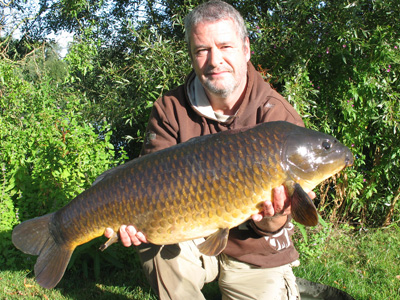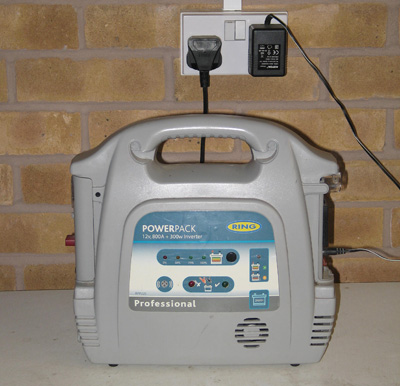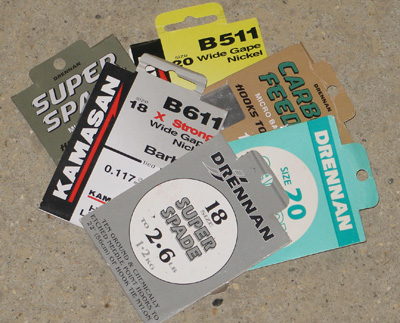I mentioned towards the end of my last piece that this month (August), I’d continue concentrating my efforts on trying to catch a big carp from Swan Lake on the Bluebell Lakes complex, and this is exactly what I ended up doing and, happily, managed to catch a few more fish.
 However, that said I continued to be a little unfortunate with the size of fish encountered, as the largest was a common of 24lb 14oz – although a mid-twenty common in great condition is a nice fish in anyone’s opinion, including mine.
However, that said I continued to be a little unfortunate with the size of fish encountered, as the largest was a common of 24lb 14oz – although a mid-twenty common in great condition is a nice fish in anyone’s opinion, including mine.
Swan can be quite a tricky lake and I felt I’d done OK to catch the number of fish that I had, but with the ratio of 30lb plus specimens in the lake I simply felt a little unlucky that I’d only caught some of the relatively smaller ones. I can only hope that this particular lake is waiting to reward my efforts with a proper lump at some point in the future.
Technology
I had my mobile phone stop working, and was without it for a good chunk of the month while it was fixed, and it wasn’t until I was without it that I became aware of just how often I have come to reference it during a fishing session.
Obviously I use it to keep in touch with my girlfriend, friends and family while I’m away, but I was surprised to discover just how frequently I’ve come to reference things like the weather updates and other useful information. It’s often the way that it’s not until you become used to something and then have to do without, that you are made aware of just how reliant you’ve become on it.
 I’m also an avid reader when I’m on a session. I like to spend plenty of time simply looking out over the water as, not only is it useful if you can actually see fish moving, but I also find it very therapeutic. However when it’s dark, or at other times when I’m unlikely to spot fish, I sometimes like to read; whether it’s a fishing magazine / book, or – more likely – a novel of some description.
I’m also an avid reader when I’m on a session. I like to spend plenty of time simply looking out over the water as, not only is it useful if you can actually see fish moving, but I also find it very therapeutic. However when it’s dark, or at other times when I’m unlikely to spot fish, I sometimes like to read; whether it’s a fishing magazine / book, or – more likely – a novel of some description.
My girlfriend reads loads more than I do, using both paper-based and electronic formats of her varied reading material. She used to use her Kindle quite a lot but has recently given it to me, as she now uses her iPad for referencing electronically stored stuff, as it has a clearer screen.
Now all of these electronic gadgets are very useful, but they do need to be kept powered up, and on the longer sessions this means also carrying around some sort of battery backup.
Over the years I’ve tried a number of the smaller, portable devices. Some have simply been power stations that you charge up at home, while others have been of the type that you can charge yourself by winding a handle, or can be solar charged via a small solar panel that is meant to be left in direct sunlight. Unfortunately I’ve found that all of them I’ve tried have been next to useless and have either not been able to store sufficient power to usefully recharge phones etc. often enough to warrant carrying them around, or have not recharged properly via the ‘in the field’ method that they are meant to use. 
The power / battery backup devices that I have found to work ok have been of the much larger and heavier motor or leisure-type units, the type of device that you can use to restart a car engine if you run the battery flat. Functionally these work a treat, I have one and I can recharge phones / Kindles etc. during a session lasting several days without the first power level indicator light going out. However, it really is monstrously heavy and is only really practical for sessions where you can fish virtually out of the back of the car, or very close to it, or on long sessions where a couple of trips with the barrow are needed for all of the gear and I’m unlikely to be moving swims.
I really need to return to something much lighter for the majority of my session fishing, but I’m loath to buy something else just to find that it’s as useless as all the other portable power units that I’ve tried. If there’s a manufacturer of this type of kit reading this and fancies donating a sample of their product in exchange for an honest review and many bankside recommendations, then please don’t hesitate to get in touch… just so long as the thing actually works as advertised!
Preparation…
Mid-August with a cloudless blue sky and the sun beating down may seem like an odd time to be thinking of winter. However I like to plan ahead and when I’m out fishing I’ll often consider what I might be fishing for in several months’ time and once I’ve decided on a rough plan of action will often run through a mental checklist to see if I’ve got all the things I need.
First and foremost is to make sure that I’ve got the necessary permits for the waters I intend to fish. A lot of memberships run from calendar year to year but some clubs have membership renewals starting on June 16 or even at other times of the year, so it can be easy to accidently overlook buying or renewing the necessary permits for campaigns that take place in the colder months.
Having said that it is worth looking out for cheaper ‘winter tickets’, as many clubs offer a cheap, or half-price, membership for anglers who only look to fish the waters later in the year and might baulk at paying for a full year’s membership.
Once I can confirm the waters that I’m likely to be fishing I’ll make a list of potential bait requirements and ensure that I’ve got ample stocks of everything that I need that can be safely stored in advance. Clearly naturals, such as maggots or worms, have to be bought or collected fresh, but things like boilies, pellets, preserved or dry particles and any additional additives and / or liquid enhancements can all be obtained prior to use and should be fine for a good few months – or even longer – so long are they are stored correctly.
 I’m quite fussy about how I store my bait to help ensure that it’s all in good nick. Stuff that comes in tins or jars, such as sweetcorn, luncheon meat and the prepared and preserved particles can simply be neatly stacked on a shelf in the garage or shed but I’ve got slightly more sophisticated storage for most other bait items.
I’m quite fussy about how I store my bait to help ensure that it’s all in good nick. Stuff that comes in tins or jars, such as sweetcorn, luncheon meat and the prepared and preserved particles can simply be neatly stacked on a shelf in the garage or shed but I’ve got slightly more sophisticated storage for most other bait items.
Dry particles are usually kept in the plastic bags that they come in, which are then stored in airtight buckets to prevent air and moisture getting to them and turning them bad. Bags of pellets and groundbait are treated the same as dry particles and I’m very careful to do a kind of stock rotation to make sure that the oldest ones are used first and nothing gets kept unused for too long. I’ve got two big, old refrigerators in the garage that aren’t plugged in, but are virtually airtight and totally mouse proof. Some of the shelf space in one of the fridges houses my seemingly ever-increasing range of pop-ups, while more of the shelf space is devoted to various boilie soaks, dips, oils and other liquids. The big pull out drawers store bags of shelf-life boilies. Any bags of shelf-life boilies or similar that can’t fit in the fridges are kept in strong plastic storage boxes, with good fitting lids.
Then there’s a big chest freezer in another corner of the garage that is used for frozen boilies, frozen maggots, deadbaits, bread (both normal sliced loaves and in liquidized format), pastes etc. The top section with the baskets is actually used for our food storage but the larger bottom section is almost entirely devoted to my bait storage. I like to obtain and freeze my deadbaits not too far in advance of a trip, as they can still continue to deteriorate, although obviously at a very much slower rate, once frozen. However I still like to have a generous quantity of ‘spare’ deadbaits tucked away in the bottom of the freezer just in case.
The actual fishing tackle itself gets some thought at this stage too.
 Obviously much of the gear is multi-purpose and will be used throughout the year. However most of my river fishing, especially the float fishing, takes place during the colder months. Therefore it’s always worthwhile checking stocks of light line, floats, hooks to nylon and a few other bits and bobs to make sure I’m well equipped in advance and taking a trip to the local tackle shop to fill any gaps where I might be running short .
Obviously much of the gear is multi-purpose and will be used throughout the year. However most of my river fishing, especially the float fishing, takes place during the colder months. Therefore it’s always worthwhile checking stocks of light line, floats, hooks to nylon and a few other bits and bobs to make sure I’m well equipped in advance and taking a trip to the local tackle shop to fill any gaps where I might be running short .
Perhaps it’s because the rivers were in such a state last winter, which in turn put paid to much of last year’s pre-planning, but at the moment I’m finding it difficult to reach any firm decisions on my target species and associated venues for the colder months. I will certainly be having a few bream sessions as soon as the weather looks suitable as I find early autumn one of the very best periods of the year to fish for big bream. This means that the actual catching side of some of the sessions coming up in the near future will most likely be very slow indeed and will therefore provide plenty of time to ponder the forthcoming winter season and hopefully allow me to make some initial conclusions on what to target.
Whatever I decide to do, I’ll be keeping you informed of any interesting events in the short term in my next piece.
Until then… happy fishing!










